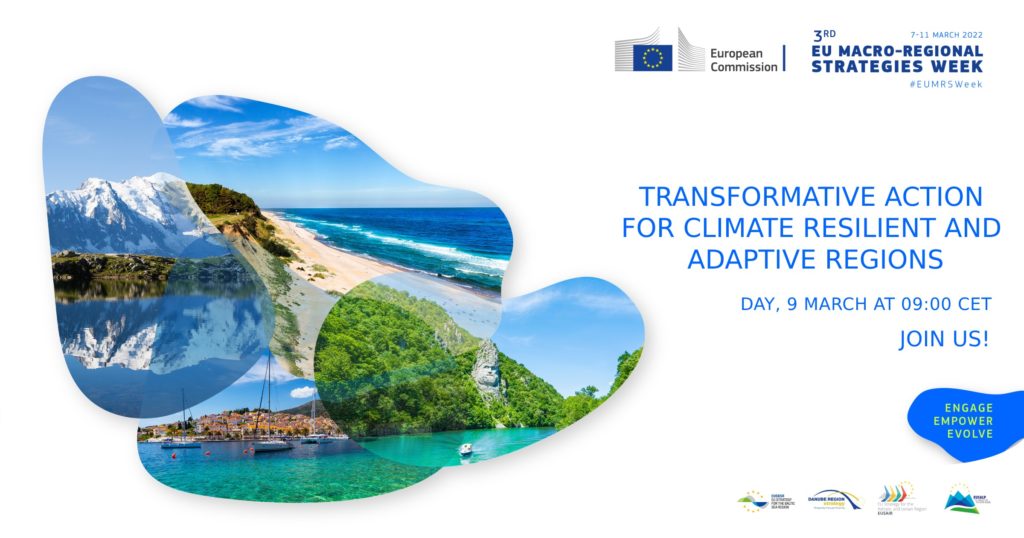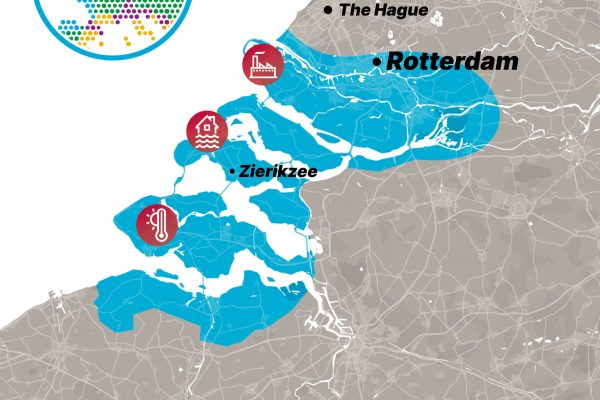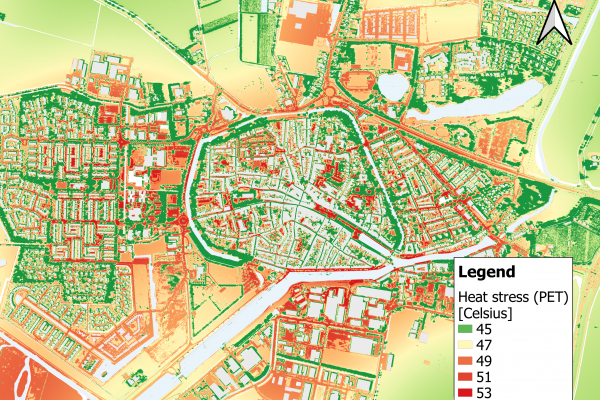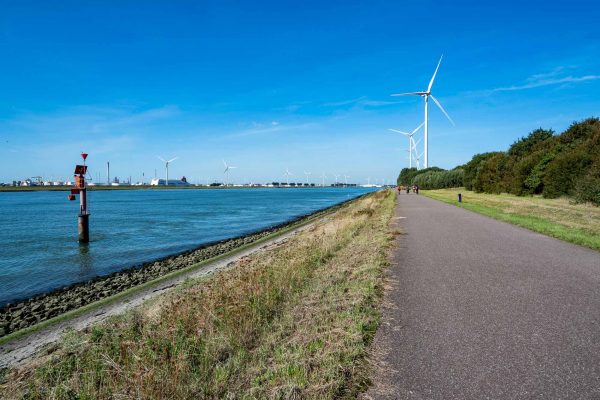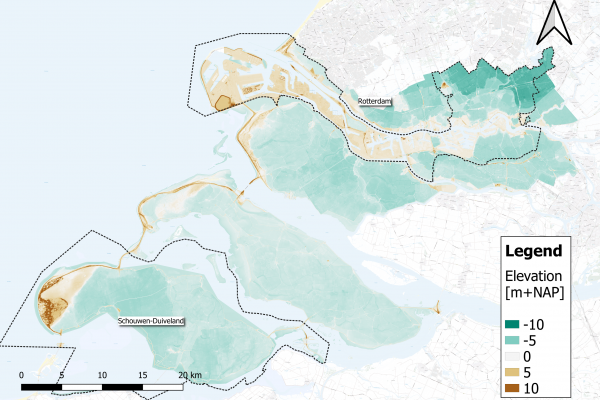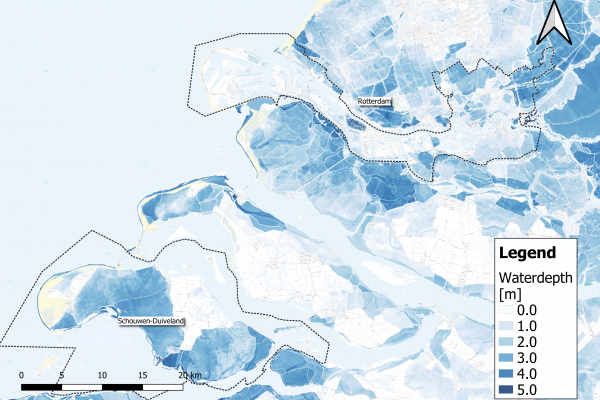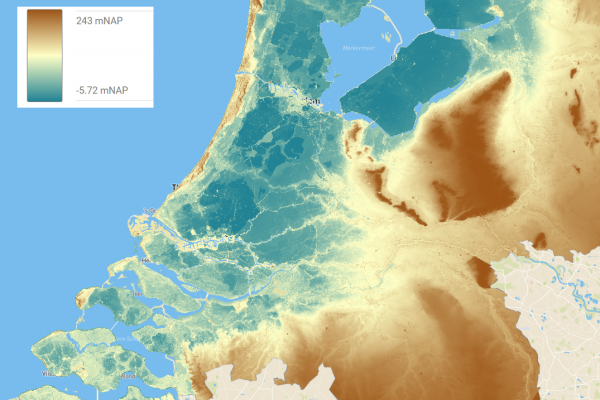IMPETUS, REGILIENCE, ARSINOE and TransformAr examine ‘transformative action for climate resilient and adaptive regions’ as part of wider collaboration effort
Four Horizon 2020-funded projects explored how to best assess and improve the climate-change resilience of vulnerable regions in a joint session on 9 March 2022, during the 3rd European Union Macro-Regional Strategies (EU MRS) Week. REGILIENCE, ARSINOE, IMPETUS and TransformAr are coordinating efforts to identify common goals, challenges and work areas, to achieve best possible outcomes for communities as part of the European Green Deal and the European Union’s Mission for Adaptation to Climate Change and Societal Transformation. The session on ‘transformative action for climate resilient and adaptive regions’ was the first result of this collaboration to raise visibility of the projects, their participants and their goals.
More than 60 participants joined the session to hear a panel of experts present approaches and solutions that will be tested in various regions and communities by the four projects in the Mission for Adaptation to Climate Change and Societal Transformation. The Mission, a first in the EU policy world, anchoring it in the research and innovation policy of the EU with a perspective until 2030, fosters the development of innovative solutions and will engage with and empower regions, cities and communities to adapt to climate change. The Mission, the EU Adaptation Strategy and their importance for regional development as well as various solutions and support measures were presented by Johannes Klumpers, Head of secretariat at EC Directorate General CLIMA. He highlighted how public funding can accelerate the achievement of societal goals, which is key to getting citizens on board as active and engaged players. He invited session participants to adhere to the Mission charter, to become part of a community of practice on adaptation to climate change and to join the First Mission Forum on 7 June 2022. He said the Mission’s goals are to help regions:
- understand climate risks,
- prepare plans / roadmaps,
- build resilience and demonstrate adaptation.
Regional testimonials
This keynote was followed by short video testimonials from selected project demonstration regions: French Guadeloupe is a demonstrator in the TransformAr project, addressing 2 key sectors, agriculture and tourism, which are highly impacted by climate change; the Latvian Zemgale Planning Region is developing a GIS-based flood warning system as part of its work in the IMPETUS project; and Athens is alleviating heat pressure through nature-based solutions as part of its resilience strategy, supported by ARSINOE.
Opportunities through collaboration
By assessing and improving the resilience of regions, the 4 projects will help them prepare for future crises and reduce their associated risks. In this framework, new tools and methodologies help regions and communities to better understand, plan and develop strategies tailored to their needs, which will maximize their resilience to the impacts of climate change. A panel of experts explained the opportunities that result from the projects working together in a cluster, presented existing good practices, and expressed the motivation of partners to step up regional climate action.
Moderated by Vasileios Latinos of ICLEI (REGILIENCE), the panellists discussed: how to simplify resourcing and financing of adaptation; how to overcome the ‘adaptation gap’ and evolve towards integrated climate action that engages and empowers citizens, switching focus from post-catastrophe action to perspectives for resilience; and how to test specific adaptation measures that can be replicated in other regions as well as more systemic approaches to climate change.
- Stefania Manca representing the Municipality of Genoa and the EU Agenda Partnership for Climate Adaptation commented that the 2017-2022 Partnership allowed representatives from cities and countries to exchange knowledge and feedback on funding schemes. She said a focus on insurance data and upscaling potential is useful, for example an EU Investment Bank toolkit and guidance for cities helps them assess benefits and enhance their ability to access financial instruments. Better planning and avoidance of maladaptations are also necessary, she added.
- Chrysi Laspidou of University of Thessaly explained how the four projects are building upon and helping to materialise the EU macro-regional strategies by equalising regional climate-change preparedness levels and supporting their planning efforts. Change is happening through the systematic involvement of all actors and breaking out of sectoral silos, changing mindsets and co-creating adaptation pathways, identifying the financial instruments that will fund them.
“Covid has shown that we are not good at reacting: we need to be prepared. That’s what these 4 projects are doing, at different levels and with different countries – helping them to prepare and adapt to climate change.” Chrysi Laspidou, University of Thessaly, ARSINOE project lead
- Representing the TransformAr project were Laurence Couldrick of West Country Rivers Trust, UK and Alessio Satta of MEDSEA Foundation Sardinia, Italy. Laurence Couldrick emphasised the need to avoid tackling challenges within siloes such as ‘water’, ‘flooding’, ‘fires’, etc. and instead to take a more integrated and long-term perspective – for example reviewing farming practices that might appear beneficial for the short term but may not be viable in the future. How do people adapt and respond to droughts, flood risks, and so on? “We are starting these conversations, changing practices and looking at the role of citizens, communities and financing in this,” he said. The role of authorities and the need to involve them from an early stage of planning to ensure funds and methods match needs and expectations around post-disaster actions was raised by Alessio Satta. He highlighted the value of narratives to bring people on board and move from planning to action to overcome the adaptation gap.
- On behalf of the IMPETUS project, Giovanni Luigi Brumat of Cantina Toblino – a viticulture cooperative in Trentino, Italy – explained the challenges faced by his community. “As well as climate data, we need more decision-making systems dealing with climate change,” he said. In the past 10 years, climate change events have been increasingly impactful. More understanding is needed of water consumption and how best to deal with scarcity, as well as how to access financing for solutions. The project’s ‘Resilience Knowledge Boosters’ will use new data handling and visualistion systems to support informed decision making, and to come up with new solutions.
The 9 March session came hot on the heels of the latest report from IPCC, the Intergovernmental Panel on Climate Change, which highlighted the need for adaptation strategies as climate change impacts become increasingly frequent and damaging to economies, health and well-being as well as to the environment. The EU MRS Week provided valuable big-picture context and understanding of the value added by a macro-regional strategic approach.
A REGILIENCE survey to understand common needs and challenges to adapt to climate change impacts is open, to gather experiences from vulnerable regions in different parts of Europe.
Further information
The impacts of climate change are increasingly frequent, resulting in economic losses, environmental degradation and affecting health and well-being of people all around Europe – and globally-, highlighting the need to find adaptation strategies on top of mitigation strategies. That was again highlighted recently in the latest IPCC report. The EU released a strategy in 2021, to help EU face these events and reduce the regions’ vulnerability.
More about the 2022 EU MRS Week.
